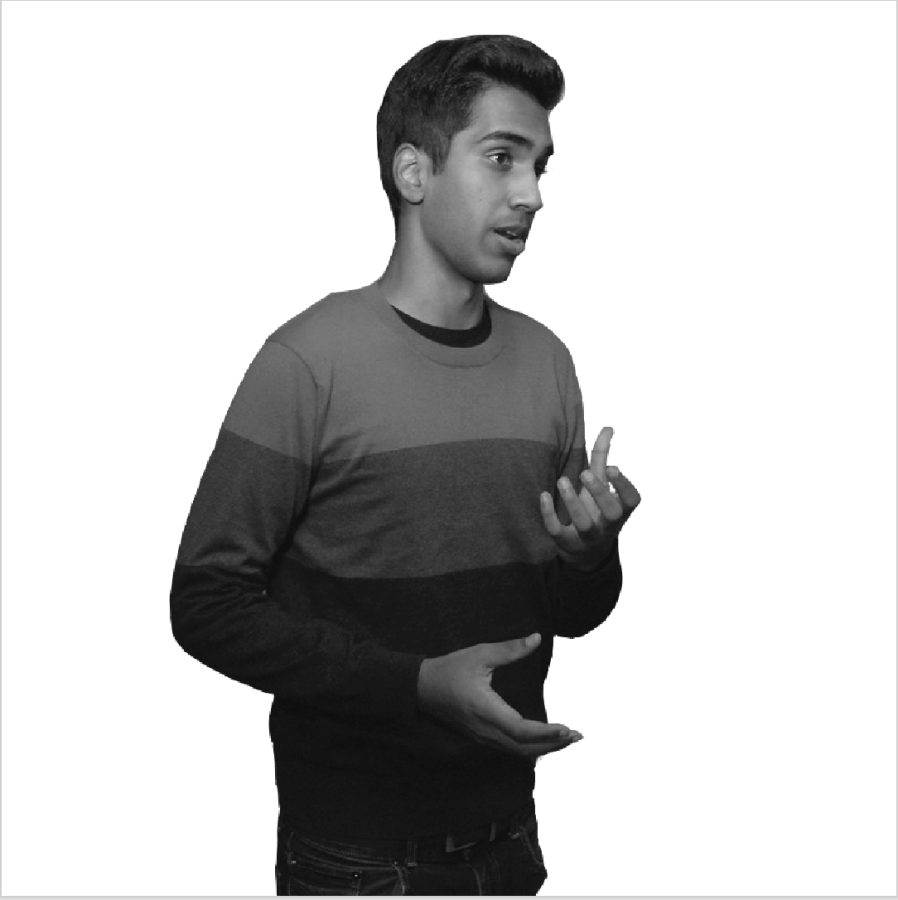Senior Saman de Silva: Classical Singer
In middle school, senior Saman de Silva never thought of himself as an artist. Instead, de Silva identified more with his academic interests. That all changed when he discovered classical singing in the summer after eighth grade.
Classical singing encompasses both art song and opera. De Silva explained the differences between the two subgenres. “Think of it as the difference between Dua Lipa and musical theater,” he said. “Dua Lipa writes these one-off songs that don’t necessarily have a narrative that binds them together, whereas musical theater is more like opera.” De Silva participates in art song because, as a teenager, his vocal cords are not mature enough to sing opera safely.
One of de Silva’s most significant experiences singing classical music happened on Nov. 30, 2020, when he participated in a radio program called “From the Top.” As a part of the program, de Silva was given the opportunity to sing two pieces for patients at the Colorado Children’s Hospital via Zoom. “It’s really for the children who are there year-round or as longterm patients,” he said.
Looking back, de Silva is grateful that he got the opportunity to use his singing to help other people. “The kids loved the music,” he said. “It was calming during what was a very hectic time for them. I think that was the first time I’d ever seen music that comes from me contributing to the welfare of society.”
All of the hours spent rehearsing and fine-tuning his voice have allowed de Silva to gain a more nuanced appreciation of classical singing. This new eye for detail within the music has made de Silva’s work more rewarding. “I know the craft that goes into it,” he said. “I know what it looks like to collaborate with other artists and musicians. It is so nonlinear compared to math and what [math teacher David] Deggeller teaches us in calculus. I think I have so much more respect now for how [music] works.”
Despite all of the respect and admiration that de Silva has for classical singing, he is also cognizant of its flaws. The most prominent among these are classical singing’s failures to adequately convey the stories of people of color (POC). De Silva was particularly angered over an opera called “The Professor’s” by George V. Ze, which depicted Sri Lankan people as primitive. “It was so problematic seeing that,” he said. “My eyes went wide when I realized, ‘Oh, my god, is this really how my art form thinks of me? I just never had any personal experience with that until after seeing that opera.”
To help address the lack of diversity in classical singing, de Silva spoke at TEDx Gunn last year, where he delivered a speech championing the importance of diversity in performance arts. Looking into the future, de Silva remains hopeful that classical singing will become more diverse. “There’s more consumption of new works that tell different stories of POC and will thus feature POC,” he said.
De Silva is still unsure of whether he will fully continue singing classical music in the future. “I am going out to auditions for two conservatories in the month of March,” he said. “But, I don’t actually think that I’m necessarily going to go to a music school.”
Instead, de Silva hopes to pursue both music and his academic interests. “What I find highly likely is [that] I’m going to go into an [undergraduate school] for an academic subject, but then study music at a local conservatory and get as close as I can to getting a bachelor’s degree in music,” he said.

